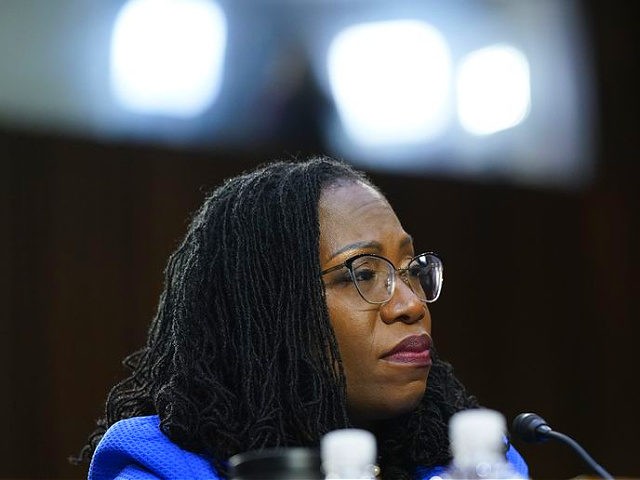One of the numerous child porn offenders who received a lenient sentence from President Joe Biden’s Supreme Court nominee Ketanji Brown Jackson continued to seek out “sexually arousing” images of young children after his three-month stint in prison.
Jackson’s sentencing in United States v. Hawkins was at the forefront of her confirmation hearings after Missouri Sen. Josh Hawley (R-MO) exposed Jackson’s pattern of sentencing child sex offenders to lower than what the federal sentencing guidelines recommend.
Hawley tweeted:
In the case of United States v. Hawkins, the sex offender had multiple images of child porn. He was over 18. The Sentencing Guidelines called for a sentence of up to 10 years. Judge Jackson sentenced the perpetrator to only 3 months in prison. Three months.
After Hawley questioned Jackson about her remarks in the case and if she regretted handing down a lenient sentence, the Washington Post reported that the defendant in the case continued seeking out “sexually arousing” images of young children.
According to the Washington Post:
A person familiar with the Hawkins case read to The Post the probation office request that led to Jackson’s order. The person spoke on the condition of anonymity, because they were not authorized to publicly discuss it.
The probation office petition did not allege that Hawkins committed any new sexual offense or violation of conditions. However, it stated that “despite being in treatment for more than five years,” Hawkins “continues to seek out sexually arousing, non-pornographic material and images of males 13 to 16-years-old.”
Wesley Hawkins was 18 in 2012 when he uploaded videos of young boys engaged in sex acts to YouTube and exchanged the videos with an undercover detective. Federal authorities then executed a search warrant and found more than 30 sexually explicit pictures and videos of young boys on his computer and phone.
Despite the fact that sentencing guidelines call for an eight to ten-year sentence in this case and the prosecutor recommended a two-year sentence, Jackson sentenced Hawkins to a mere three months in prison. Jackson also sentenced Hawkins to three months home detention and six years of supervision.

Supreme Court nominee Ketanji Brown Jackson arrives for the second day of her confirmation hearing before the Senate Judiciary Committee, Tuesday, March 22, 2022, in Washington. (AP Photo/Evan Vucci)
This was a “just sentence,” according to Jackson. The Washington Post reported:
At Hawkins’s November 2013 sentencing she cast the challenge as finding a “just sentence” — “One that allows you, Mr. Hawkins, to spend enough time in prison to understand and appreciate the consequences of your actions … but not so long that you will be subjected to harm in prison or introduced to incorrigible influences such that you are lost to society forever.”
Jackson reportedly gave weight to the age of Hawkins and that of the young children found in his files when sentencing him to only three months in prison. Jackson told Hawkins, an 18-year-old interested in children as young as 11 years old, he was “fascinated by sexual images involving what were essentially your peers.”
Jackson also considered the amount of time Hawkins collected explicit images of young children in her decision. Jackson justified her light sentence because he was “only involved in this for a few months.”
As a result, Jackson rejected enhancements that would have extended Hawkins’s prison sentence. Hawley called Jackson’s sentence in United States v. Hawkins a “slap on the wrist” during her confirmation hearings.
During the confirmation hearings, Jackson claimed she did not remember whether Hawkins committed an additional sex offense after Sen. Tom Cotton (R-AR) cited a 2019 court order Jackson issued requiring Hawkins to complete the final six months of his supervision in a halfway house.
Cotton did not believe Jackson’s apparent lapse in memory. “You’ve been asked about it probably more than any other case you’ve had,” Cotton told Jackson. “You know what I think? I think he got caught with child pornography again, and he wouldn’t have if he had been in prison the eight to 10 years the guidelines called for.”

COMMENTS
Please let us know if you're having issues with commenting.